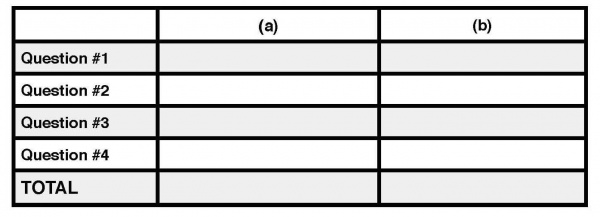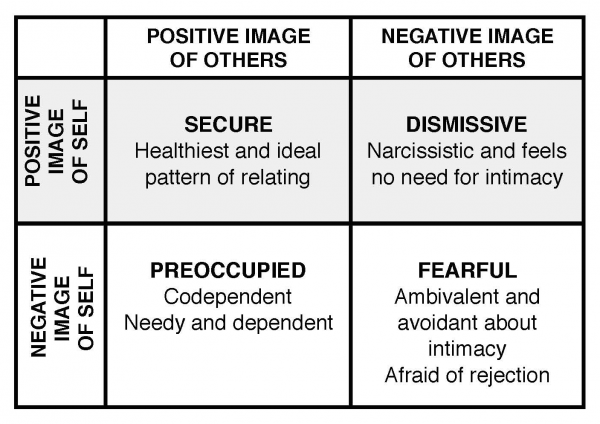


Fr. Johnny C. Go, SJ
Solemnity of the Most Holy trinity
May 22, 2016
We could talk theology as usual, resorting to the familiar formula of the three divine Persons in one God. Or we could opt to discuss its spiritual message–how community life among us is perfectly exemplified by the Father, Son, and Holy Spirit. And if you prefer, we could also simply wax poetry because there is so much poetry in this mystery in the way it suggests how concretely God, by His very nature, is love.
But this Trinity Sunday, let’s delve into the psychology of this mystery instead because I think it offers us a psychological meaning as valuable as its theological, spiritual, and poetic truth. Because it is precisely about the relationships among the Divine Persons, the mystery of the Blessed Trinity invites us to examine the way we relate to one another.
Take some time to think about your more significant relationships. The following four “Multiple Choice” questions are designed to guide you in reflecting about these important relationships in your lives and to help you identify a pattern among them.
It’s possible that the ideal response you have in mind is not found among the given choices. In such a case, just choose the option that best resembles your ideal answer. Note also that there are no correct answers, but only truthful ones, so please be honest. Be warned: The questions are very direct, but just try your best to respond to them.
(a) Yourself
(b) The other persons
(a) You have a more positive image of yourself than of the others (You think you are, relatively speaking, the more attractive, more gifted, more loving one, etc.)
(b) You have a more positive image of others than of yourself (For you, they are more attractive, more gifted, more loving, etc.).
(a) The others
(b) Yourself
(a) The others
(b) Yourself
Determine your score by counting the number of times you answered (a) or (b). You may want to use a scorecard like the one below. Just add up the columns to get the total number of times you picked (a) and (b).
Here’s how to interpret your score. Remember, the scores only provide a guide; you still need to validate them by examining the patterns of your relationships.
If you have a total of at least 3 for (a), you probably have a more positive image of yourself compared to your image of other people. The converse is probably also true: You have a tendency to nurse a more negative image of others than of yourself.
If you agree that these descriptions apply to you, this pattern of relating to others is called–and this is going to be blunt!–“dismissive.” Persons with a “dismissive” pattern of relating tend to be narcissistic, as well as insensitive to the needs and dignity of their supposedly significant others. In its extreme cases, they may even feel no need for intimacy or for relating with others.
If your score for (b) is at least 3, the opposite may just be true. Your tendency is to consider your significant others as superior to you. You have a more negative image of yourself than of them.
If you agree that this is your inclination, this pattern of relating is known as “preoccupied”: You tend to be what psychologists call a co-dependent, willing to work on your relationships at all costs (even at the cost of your own self-esteem!) because you feel needy and insecure about your relationships. You tend to lose yourself in your relationships–your self-worth and sometimes even your identity. Sometimes such a way of relating is misconstrued as true love, but it actually harms both the needy lover and the pampered beloved in the long run.
What if you have a tie between (a) and (b)? Ask yourself: Which of the two patterns described, do you, given your history of relationships, tend to lapse into? What will be helpful here is to identify your tendencies in your relationships.
It is, of course, quite possible that after examining your way of relating with the significant others in your life, you feel that your pattern of relationships is neither dismissive nor preoccupied. For some reason, you can actually have an almost equally negative image of yourself and others. This is a symptom of a pattern of relating that psychologists describe as “fearful”: You tend to feel torn about intimacy. You have a need for it–even a strong one, but you are too scared of rejection to keep a healthy relationship.
Of course, the healthiest and most ideal pattern of relating is found in a relationship where those involved feel that they are as important as those they relate to; in other words, they have an equally positive image of themselves and of others. They are able to keep their identity and self-worth, as well as respect the identity and self-worth of others. And most importantly, they enjoy a one-ness with their significant others, able to nurture a truly healthy and intimate relationship with them. Understandably, in psychology, this type of relating is called “secure.”
It is no coincidence that the dogma of the Holy Trinity insists that the three Divine Persons have these three very characteristics: They are equal, distinct, and one. Indeed, the Holy Trinity is the icon of healthy and secure relating, offering us the very model for how we ought to relate to one another.
Here at a glance is a summary of the four patterns of relating with others. Can you locate the box where your present way of relating fits?
Remember that the first box represents our goal–the healthiest and ideal pattern of relationship. Most of us, being flawed, are not quite there, but what matters is that we keep working towards this ideal. Wherever else we find ourselves for the moment, just remember we need to do only one thing: grow in consideration either towards others (in the case of the dismissive) or ourselves (in the case of the preoccupied)–or in the case of the fearful, both!
Today, Trinity Sunday, let us ask the Holy Trinity to bless our significant relationships and to grant us the grace to learn how to relate with others the way the Divine Persons relate to–and love–one another.